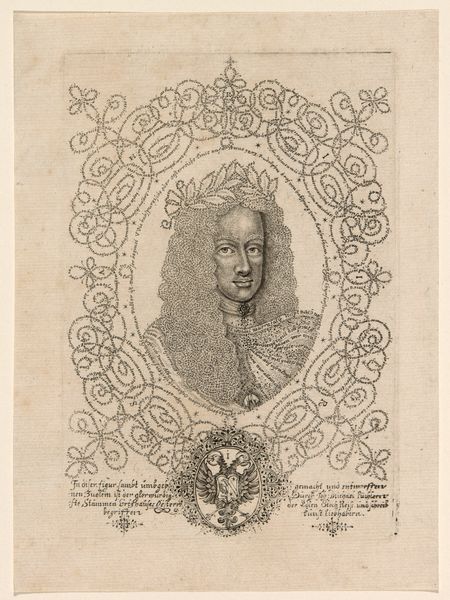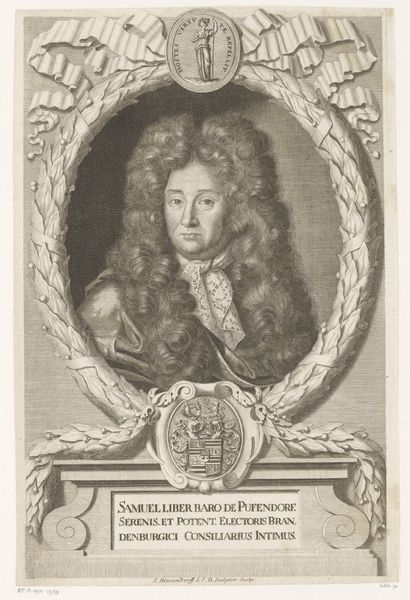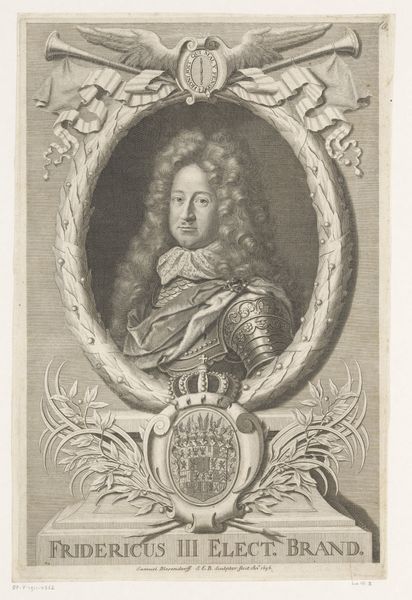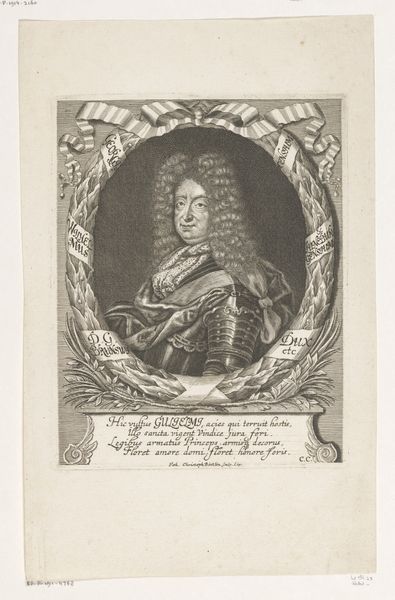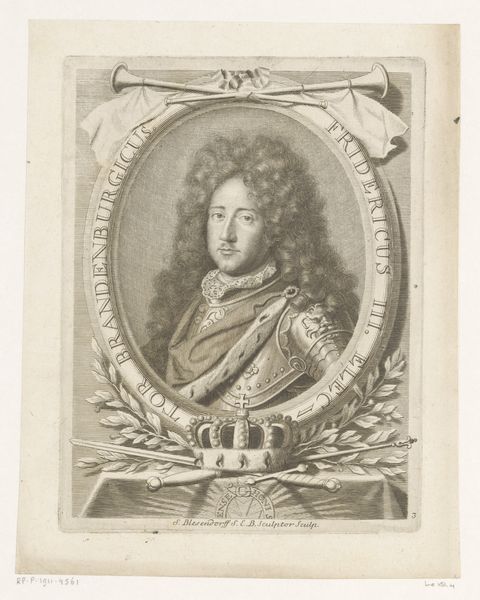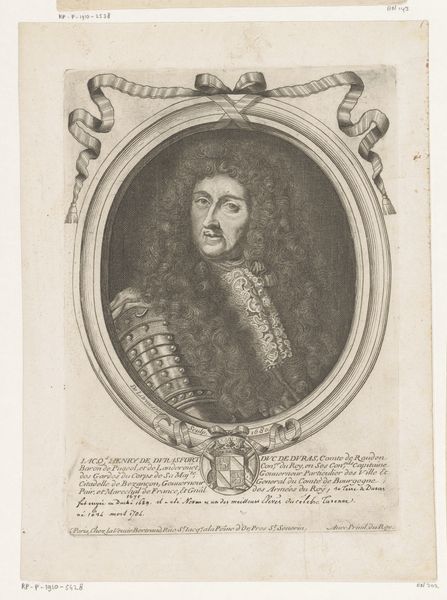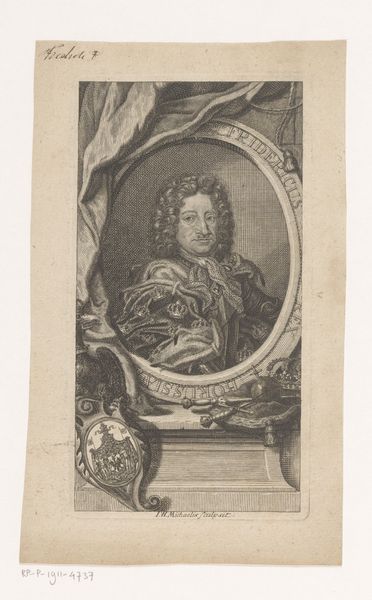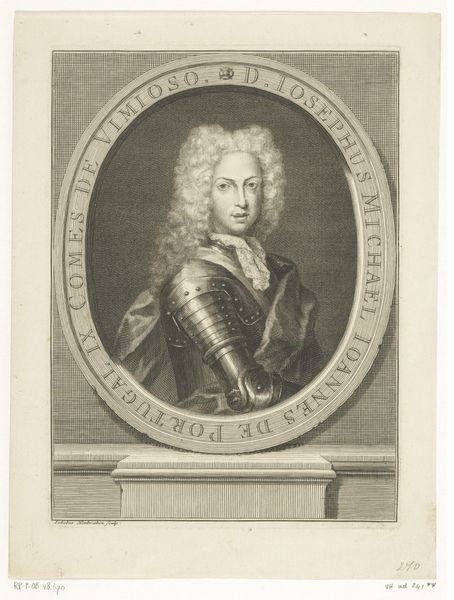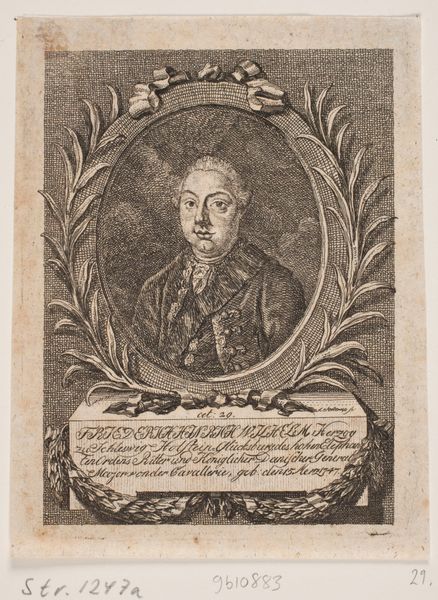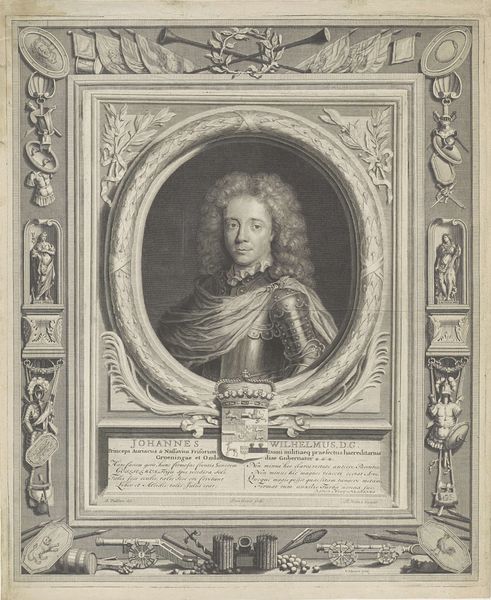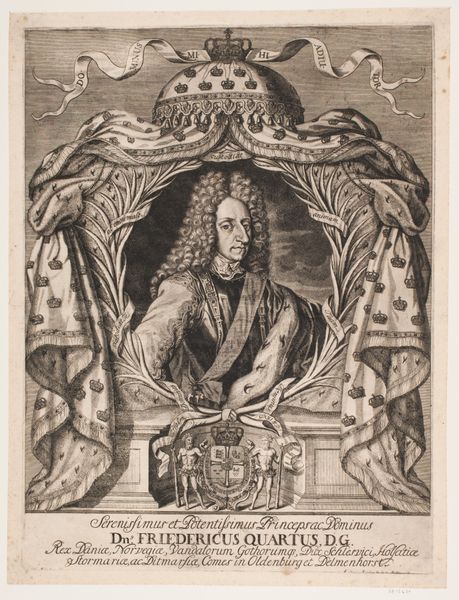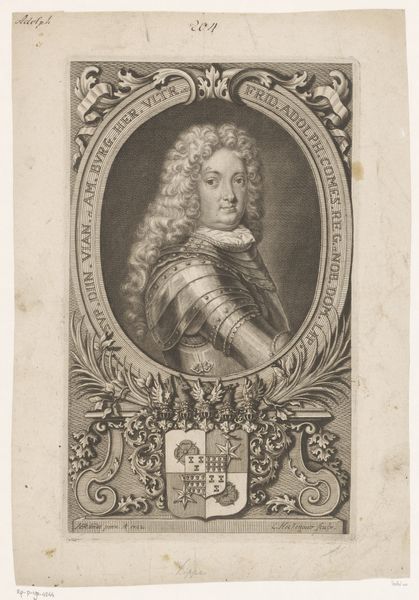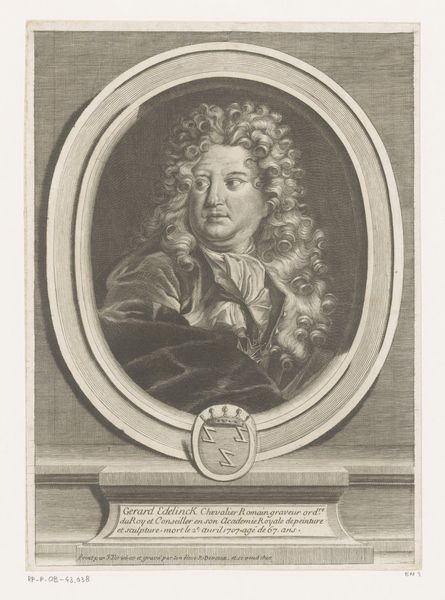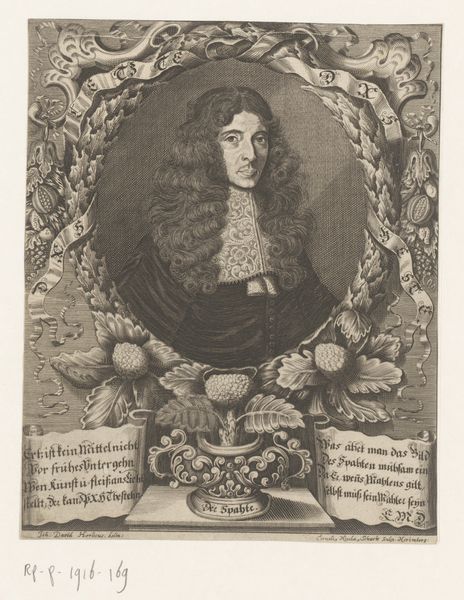
drawing, print, paper, engraving
#
portrait
#
drawing
#
baroque
#
pen drawing
# print
#
paper
#
linocut print
#
history-painting
#
engraving
Dimensions: 125 × 90 mm (image/sheet, trimmed within platemark)
Copyright: Public Domain
This print of Joseph I, Holy Roman Emperor, was produced in Germany in the late 17th or early 18th century by Johann Michael Püchler. The image is not made from conventional lines, but rather from densely packed text. This portrait operates as both a visual representation and a textual tribute to imperial power. Note the elaborate wig, laurel crown, and decorative armor, all signifiers of status. The text itself would have been carefully chosen, likely including praises and titles that reinforce Joseph I's authority and divine right. Consider the social context of the Holy Roman Empire at this time: a complex patchwork of territories with a deeply entrenched aristocracy. Prints like these played a crucial role in disseminating images of power, reinforcing the emperor’s image across a far-flung realm. To fully understand the print, historical research is key. Examining the original German text, researching the political climate of the time, and exploring the circulation of such portraiture would give a richer insight into its original function and meaning.
Comments
No comments
Be the first to comment and join the conversation on the ultimate creative platform.
